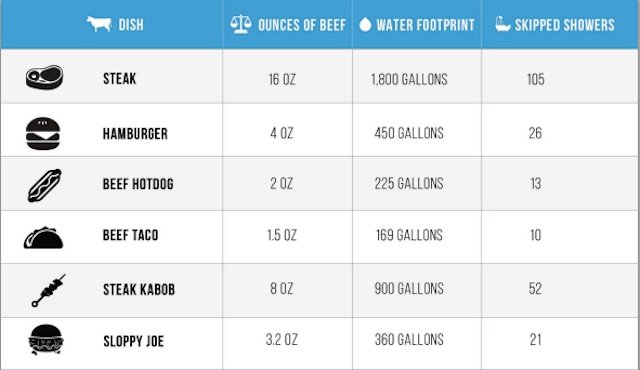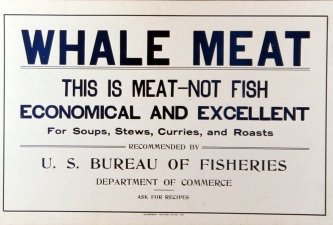Synthetic Meat: The Vegetarian/Vegan’s Dilemma

How Science and Technology have rocked 29 years of belief.
Animal activists and Environmentalists must support this industry in order for them to achieve their goals.My Background
I was born and raised a vegetarian and have often been on a vegan diet throughout my life. Meat has never been a palatable option for me. Only until later in my life did I realize how well the reasons for not consuming meat aligned with who I am. I am happy to say that I do not contribute to factory farming, deforestation, or having to unnecessarily take the lives of other living beings. I feel as though the carbon footprint of my diet is relatively low compared to the average person. My family has cared for its own chickens for our eggs And I have worked on a farm during different periods of my life.

Some Facts
With new products produced by companies like New Wave Foods, I'm finding that I will have to re-evaluate my belief system when it comes to meat. I do not want to go into all the harmful environmental effects that animal agriculture has on the environment in this article but here's some food for thought on the quick facts on water consumption from treehugger.com which I checked with this LA Times article.

Source: TreeHugger
I chose to focus on water because I feel like that will be one of the next biggest commodities at risk. At least that is what Dr. Michael J. Burry who predicted the 2008 financial crisis is investing in.
The Dilemma
The real dilemma I face is that this new synthetic meat is grown from stem cells in the lab. That means there is no animal suffering the production of the meat, it will be more efficient, and less harmful to the environment than any methods we currently have to supply the global population with meat. Of course, the first hamburger produced in the lab cost €250,000. As the technology progresses, it is predicted that this method of supplying meat will become far more cost-effective. Growing up a vegetarian, the very thought of putting meat in my mouth has always disgusted me. I often imagined being stranded on a desert island with no food except meat and I have wondered if I would eat it. I often come to the conclusion that I would let myself starve, but I know that is silly because when I look to science; Science tells us that our brain and who we are changes when faced with severe starvation. As we have learned from Uruguayan Air Force Flight 571 and the Donner Party. Even so, I'd like to think I'd have the conscious choice to let myself starve. I most likely would not choose to... As you can see I go back and forth with this idea. I love life but hate the thought of eating meat. Also in my ponderings, I have always imagined that the only way I would eat meat would be if I hunted it myself so I could fully understand the relationship between me and the animal.

Source: Nature.com
Clearly, the issue of life and death is not involved in my current situation. Meat is a clump of cells, just like the plants I eat every day. From what I've read, every person that has tried it considers it meat. It is my understanding that it only lacks the fat and I am sure that will soon change.
**The Pros: **
This technology May finally bring down factory farming and all of its harmful effect on the environment.
I may decide to taste all the things people are telling me I've been missing over the course of my life.
No more animals will have to give up their life for human consumption.
Most people are already so disconnected from where their meat comes from so I'm sure this can become widely acceptable, especially if it were to be cheaper than farm-raised animal meat.
The Cons:
Part of me thinks meat is a strong carcinogenic.
The few times I had mistakenly had meat I deplored the taste.
Meat will be acquired a taste for me.
I no longer have the snooty lifelong vegetarian title to hang over people's heads.
Conclusion
I'm happy that there's technology out here like this. I feel like people have been so disconnected from where their food comes, whether it's vegetables, meat, grain, spice, roots, or any other type of food. Slipping synthetic meat into their diet won't be a big step beyong the current state of the relationship between food and people. The biggest challenge I see would be the effects on the animal agricultural industry and their lobbyists. All and all the new synthectic meat industry may have some unlikely supporters. The irony.
The Video that inspired this post today, although synthetic meat has been on my radar for a number of months now.
PS @berniesanders I will not use the steemit tag. His post about it.
Cover Image Source
Whether it is man made or not I still think meat it gross, but you raise some good points. The irony.
I feel you =)
Where do the stem cells come from?
The animals :) I am wondering if they will soon be able to reuse them or harvest in another way.
I understand some of the issues here, but there is another side to consider for meat-eaters. Many kinds of heritage livestock breeds have gone extinct in the recent decades. Unless someone is willing to raise them, they'll perish. Unfortunately many simply don't have the resources to do so. But, unless someone eats them, they'll go extinct. I made a post about this issue last night HERE.
"The burning of fossil fuels for energy and animal agriculture are two of the biggest contributors to global warming, along with deforestation. Globally, fossil fuel-based energy is responsible for about 60% of human greenhouse gas emissions, with deforestation at about 18%, and animal agriculture between 14% and 18% (estimates from the World Resources Institute, UN Food and Agriculture Organization, and Pitesky et al. 2009)."
I feel as though a lot of deforestation from animal agriculture, so I add a few points to those last two numbers.
This second article I will quote from and link talks about the Mass extinction right now, "Finally, assuming that Caribbean reefs have one-twelfth of all reef species, they calculated total reef diversity figures of approximately 1,656,000, 2,163,000, and 2,594,000 species, respectively. If the less conservative estimate of total reef area in the world that Reaka-Kudla ( 1997) used (600,000 km 2) is applied to these calculations, the figure for reefs overall rises to approximately 3.2 million species."(Full Article Here)
I am glad you have a good relationship to the food/animals you eat and I am not telling you to stop either. I would rather have you influence more people to consume meat like yourself. I think this second article puts an interesting perspective on the big picture.
Finally, if you set up a habitat livable for these 200 heritage breeds, would they not be able to survive?
Did it have to be a burger munching woman on the beach?!
Irrelevant
@beanz Wonder why you clicked on it?
@alexoz It seems like spreading awareness, and he gives credit to @berniesanders who if you read his post was taking a cue from @ned.
Clicking and reading didn't make me upvote. Click bait only works when advertising is paying you, which makes steemit wonderful in my eyes because I hate click bait. Also veganism interests me (even though I'm a hard core carnivore) so it didn't need the click bait to make me want to read it.
It would have got my vote if it weren't for the thumbnail.
Even though you like the content the one photo stopped you from voting? Rekt like me name.
Yes. The irrelevance and crappy thumbnail which looks like click bait made me not want to vote because what I love about steemit is there is no need for it so I'd rather not see people trying it.
Like I said click bait works on other social media sites because of the advertisers who pay them. We don't need that here or want that here
I'm talking about it! Steemit turned to be a competition. It must change...
I understand that. And I haven't flagged it or anything. But just so you @tralawar knows this would have got my upvote if it weren't for the thumbnail.
Great perspective. I wonder how this will play out.
I'm going to guess that this artificial meat isn't going to be as nutritious as the real thing. As it is now, grain-fed cattle is bad in its' omega-3 omega-6 ratio which feeds into the pro-inflammatory diet of the average person (inflation linked to lots of diseases and immune diseases), in which grass-fed has a much better ratio. And farm raised salmon lacks polyunsaturated fats all together!
They would likely need to either add nutrients or people will need to take supplements.
Are you saying factory farmed meat is the most nutritious? And how do you feel the abuse of antibiotics?
No, I didn't say "most nutritious", I'm saying grass fed cattle is more nutritious than grain fed, and wild salmon is more nutritious than farm raised salmon. But those are only examples to say, artificially raising cattle and salmon makes them less nutritious, so it's very likely artificially creating meat is going to lack nutrition, that's all I'm saying.
And yeah, I'd rather cattle be raised naturally than be injected with antibiotics, which the antibiotics are likely used to combat diseases that result from cows themselves being on an unhealthy diet
@playerdeus: no, the "unhealthy" diet itself isn't the problem (and we could have a long conversation about whether it's unhealthy or not). It's usually more environmental stuff like overcrowding that will predispose to issues like pneumonia that need treatment. As far as antibiotic "abuse" goes, @feels, veterinarians have been incredibly proactive about the situation compared to human medicine. Human doctors will use high-strength antibiotics to treat viral infections, only to reassure their patients, despite the fact that 1) antibiotics won't kill viruses, and 2) you shouldn't be prescribing ineffective medications. @sioux: As far as "superbugs" go, there is some new evidence that some superbugs are actually being transferred from humans to livestock, and not the opposite. This goes against everything that the medical establishment and the media have been repeating for years, but it's much easier for the medical profession to avoid taking responsibility for it's actions and to blame farmers instead.
Well here is a reference to an article that describes increasing omega 3 in cattle through flaxseed and improving their health and reducing the need for antibiotics.
http://www.npr.org/sections/thesalt/2013/02/19/172421803/flax-seed-the-next-superfood-for-cows-and-beef
Flaxseed likely won't become a staple in the diets of beef cattle. It's too fat, and too high in unsaturated fat, which is toxic to the bacteria in the cow's rumen (first stomach and huge fermentation vat). Plus, fat tends to coat the fibre of the hay and stop it's digestion by bacteria, which is a really bad idea for a ruminant. It's a nice thought, but in practice, it's not realistic. If you really want the benefits of flax, it's best to just eat it yourself :)
Interesting stuff @alexbenjalbert! Do you have and peer review articles on this. I would love to read about it! Upvote for your comment.
@playerdeus Flaxseed is the super food period I eat it every day, and cows never evolved to eat corn so I would almost put that one under common sense. Corn turns into sugar rather quickly. Sugar in corn produces an inflammatory response, unlike flaxseed which is mostly fiber, slowing down the rate at which the sugars in carbohydrates are released. I haven't done too much research on this in awhile and I am scraping these facts from the back of my mind, but I am certain they are fairly accurate.
@tralawar: starch in corn is fermented to propionic acid, which is more acidic (lower pH) than butyric acid produced from fibre (e.g. hay). So if you overload the stomach with starch, it becomes too acidic and that's when an inflammatory reaction can happen. By the way, this isn't humanity's fault: cows will naturally gorge themselves on corn if they can. It's just their behaviour. So it is entirely natural to feed them corn because they will eat it first chance they get (especially if it's on the other side of the fence!) So corn isn't "bad" per se. It's a great feed that'll provide much more energy than hay. The problems happen only when you feed too much, too fast.
@tralawar: here's one press release on an interesting article about antibiotic resistance: https://www.elsevier.com/about/press-releases/research-and-journals/humans-carry-more-antibiotic-resistant-bacteria-than-animals-they-work-with
Yeah, I wasn't trying to say we should feed cattle flaxseed, just wanted to provide an example that maybe balancing polyunsaturated fats in cattle may be beneficial to them as it is to us, meaning under a better diet, such as eating grass, could mean reduction in the need for antibiotics and healthier cattle in general, but maybe its a moot point since antibiotics are not really abused.
This is silly I know, but I feel like, if I eat meat, I'd prefer the animal to have had a good life, which to me includes eating well, being healthy, and having some freedom and space.
@playerdeus: Those are excellent points, and I agree with them. We need more research on how diets affect inflammation in farm animals, and if it affects the humans that consume them. And I also prefer to buy meat from farmers that I know, and of who's production methods I approve. It's not silly at all!
Plus, there is some interesting work being done right now with alternatives to antibiotics, like probiotics. Some of it is looking pretty promising, and I am excited to see what the future holds! Just like we went through the "green revolution" a while ago, I believe we are again on the cusp of changing our production methods. It makes it an exciting time to be involved in agriculture for sure!
Super bugs eww.
I'll switch to it when they start making whale meat I can eat.

Can't wait